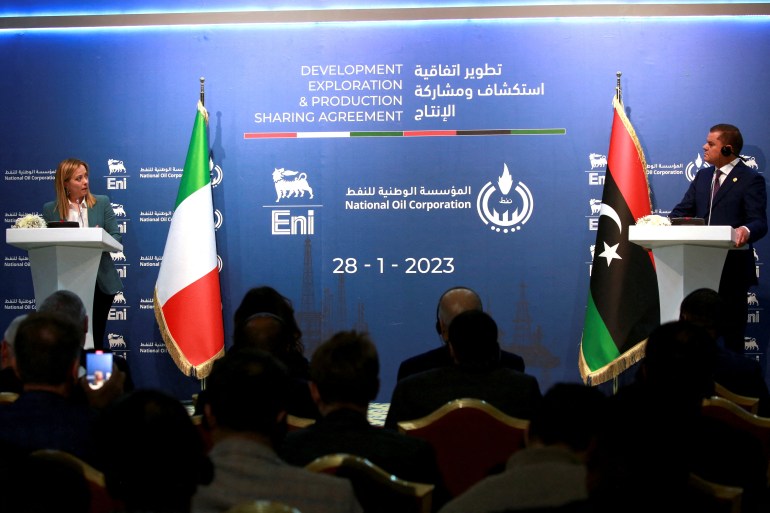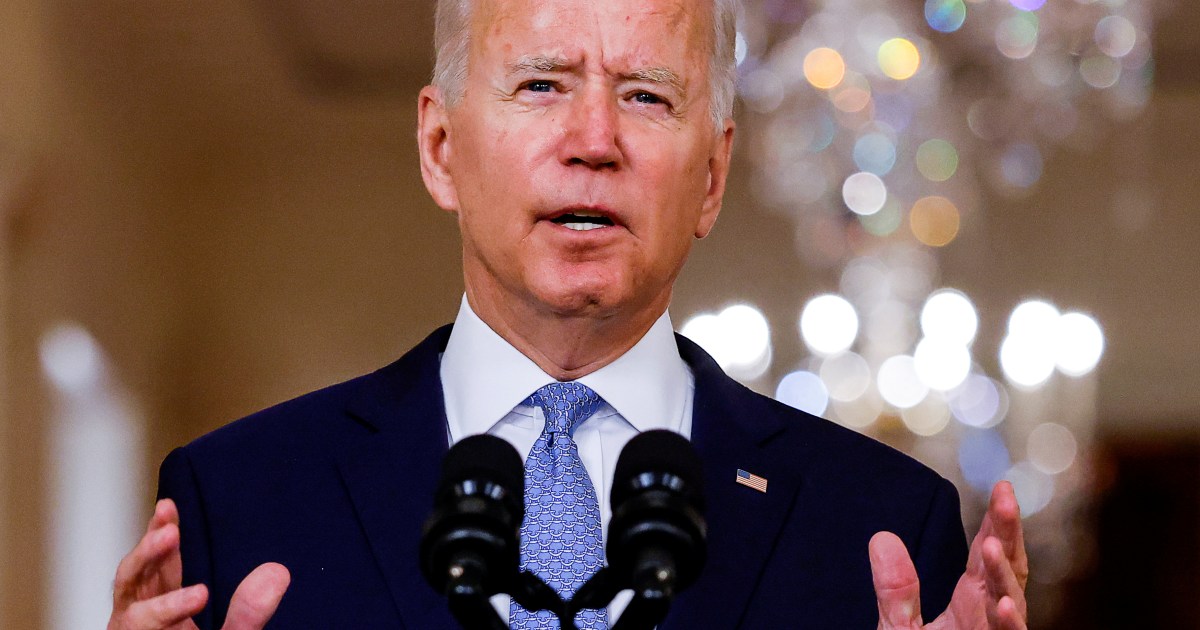Italy’s Eni signs $8bn gas deal with Libya amid energy crunch
The energy agreement, signed during Italian PM Meloni’s visit to Tripoli, seeks to boost Libya’s gas output through new offshore gas fields.
Italian energy company Eni and Libya’s National Oil Corporation (NOC) signed an $8bn gas production deal aimed at boosting energy supplies to Europe despite the insecurity and political chaos in the North African country.
The agreement, signed on Saturday during a visit to the capital Tripoli by Italy’s Prime Minister Giorgia Meloni, aimed to increase gas output for the Libyan domestic market, as well as exports through the development of two offshore gas fields.
Output will begin in 2026 and reach a plateau of 21 million cubic metres (750 million cubic feet) per day, Eni said in a statement.
“This agreement will enable important investments in Libya’s energy sector, contributing to local development and job creation while strengthening Eni’s role as a leading operator in the country,” said its Chief Executive Claudio Descalzi.
During her visit, Meloni met Libya’s Prime Minister Abdulhamid Dbeibah, head of the internationally recognised Government of National Unity (GNU) in Tripoli, for talks that also focused on migration across the Mediterranean.
Taking the lead
European countries have increasingly sought to replace Russian gas with energy supplies from North Africa and elsewhere over the past year because of the war in Ukraine.
Italy has already taken a lead in sourcing gas from Algeria, building a new strategic partnership there that includes investment to help state energy company Sonatrach reverse years of declining output.
National Oil Corporation head Farhat Bengdara called the 25-year agreement the most important new investment in Libya’s energy sector for a quarter of a century.
However, deals struck in Tripoli may be undermined by Libya’s internal conflict, which has divided the country between rival factions who vie for control of the government and dispute each other’s claims to political legitimacy.
Underscoring the uncertainty, Dbeibah’s own Oil Minister Mohamed Oun had rejected any deal that NOC might strike with Italy, saying in a video on the ministry website such agreements should be made by the ministry.
At a round table with Dbeibah, Meloni repeated her remarks from Algeria, saying that, while Italy wants to increase its profile in the region, it does not seek a “predatory” role but wants to help African nations “grow and become richer”.
Instability, increased domestic demand and underinvestment has hampered Libya’s gas deliveries abroad, according to Matteo Villa of the Milan-based ISPI think tank. New deals “are important in terms of image”, Villa said.

Uncertainty
Bengdara was appointed last year by Dbeibah, whose own interim government was installed in 2021 through a UN-backed process.
The eastern-based parliament and factions that support it said early last year the government was no longer legitimate, rejecting both the appointment of Bengdara and deals that Tripoli has struck with foreign states.
Chaos in Libya since the 2011 NATO-backed uprising that overthrew leader Muammar Gaddafi has left much of the country in the hands of armed factions. A small Italian military mission has been deployed in Libya for several years.
Dbeibah and Meloni said they also discussed the issue of illegal migration from Libya to Italy. Rome will support Libya by providing new search and rescue ships, Dbeibah said.
Insecurity and lawlessness has made Libya a major, but dangerous, route for refugees seeking to reach Europe, often via the Italian island of Lampedusa. Hundreds of refugees die each year attempting to make the journey.
Meloni has made tackling illegal migration a major plank of her governing agenda, and she has pushed the issue in recent visits to Algeria and Egypt.
Italy’s prime minister needs to show “some kind of a step up compared to her predecessor in terms of migration and energy policy in Libya”, said Jalel Harchaoui, a Libya expert and an associate fellow at the Royal United Services Institute.
“[But] it will be difficult to improve upon Rome’s existing western Libya tactics, which have been chugging along,” Harchaoui said.




